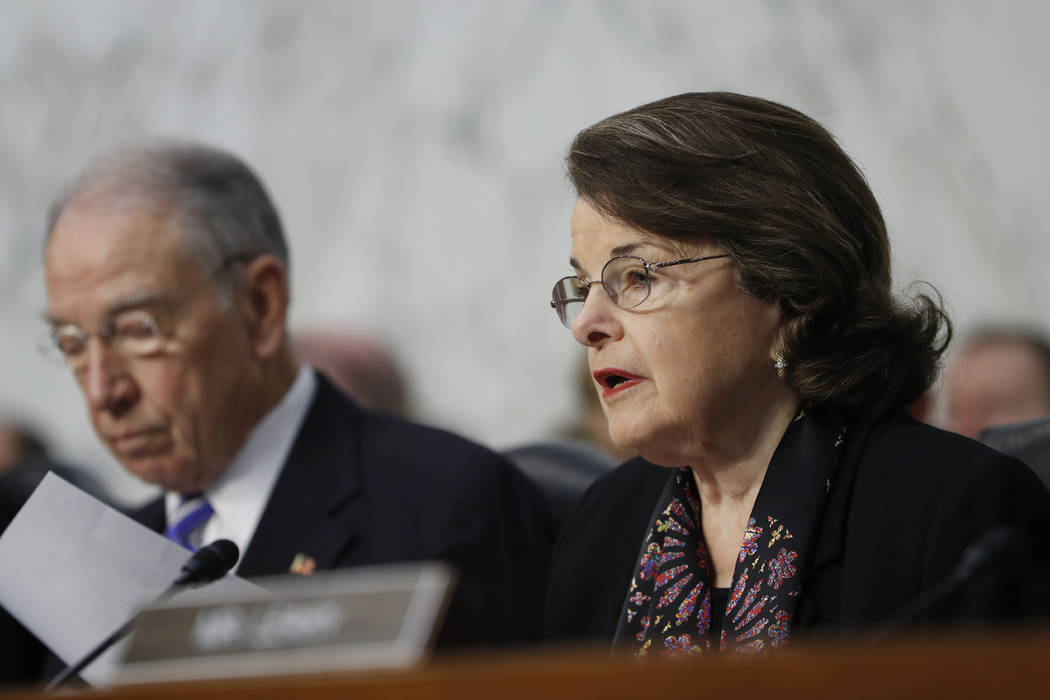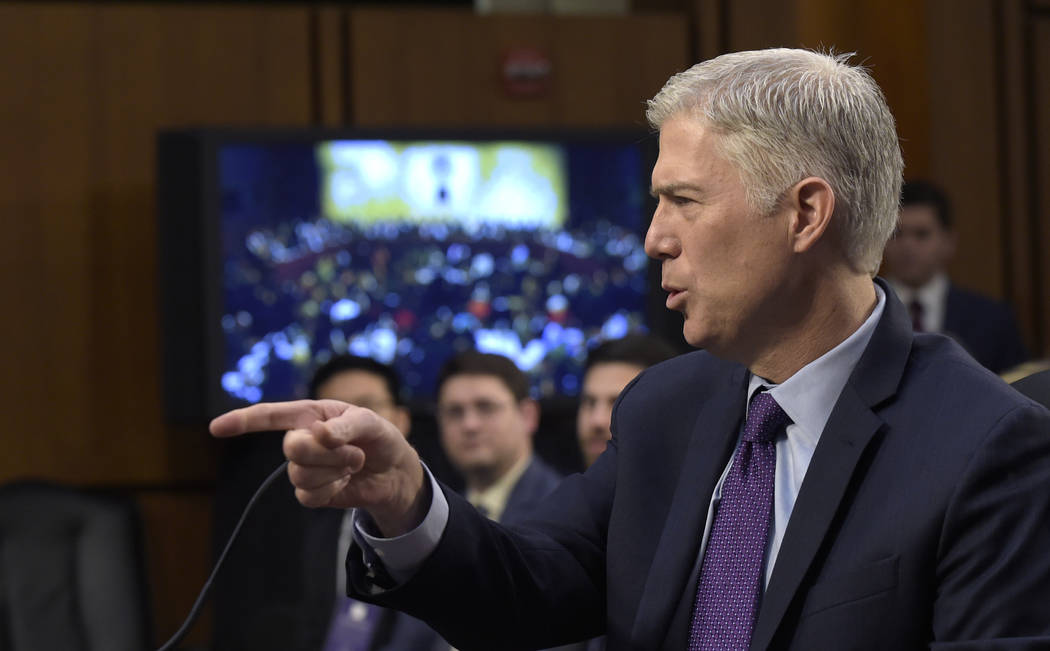Vote on Neil Gorsuch delayed as Democrats threaten filibuster
WASHINGTON — Democrats emboldened by recent events delayed committee consideration of Judge Neil Gorsuch on Monday and are eyeing a filibuster against President Donald Trump’s nominee to fill a vacancy on the U.S. Supreme Court.
Senate Judiciary Committee hearings on the confirmation of Gorsuch were held last week.
Although the hearings were uneventful, it came in the midst of chaos in the House over a health care bill that was eventually killed, and the escalation of controversy surrounding claims that Trump was wiretapped or under surveillance after the election.
On Monday, Chairman Charles Grassley, R-Iowa, agreed to Democrats’ demands to delay the committee vote on Gorsuch until next week. Grassley called Gorsuch “clearly committed” to being an impartial justice.
The delay comes after Democrats in the Senate announced their opposition to the nominee.
Senate Democratic Leader Charles Schumer, D-N.Y., took the Senate floor last week and said he would filibuster the Gorsuch nomination, forcing Republicans to get 60 votes to bring the nominee to the floor for a confirmation vote.
Schumer reiterated his pledge over the weekend, saying Gorsuch, an appellate judge on the Denver-based 10th Circuit Court of Appeals, is too conservative and outside the political mainstream to sit on the high court.
Republicans hold a slight 52-48 vote majority in the Senate and would need to pick up eight Democrats to clear parliamentary hurdles and allow an up-or-down vote on the nominee.
More than a dozen Democrats in the Senate have announced their opposition to Gorsuch. Most are still considering the nominee.
Sen. Catherine Cortez Masto, D-Nev., is still evaluating Gorsuch’s record, according to spokesman Rey Benitez.
“She believes his views on the issues and his full record deserves to be intensely scrutinized, and that is what she is doing,” Benitez said. “She also believes that the confirmation of any Supreme Court nominee should require 60 votes.”
Sen. Patrick Leahy, D-Vt., a former Judiciary Committee chairman, told a Vermont news organization over the weekend that he would not filibuster Gorsuch, but planned to vote against the nominee for the seat.
White House spokesman Sean Spicer said a filibuster of Gorsuch would be “nothing short of obstruction.”
“He deserves a fair up-or-down vote,” Spicer said.
Senate Republicans have united behind the Gorsuch nomination.
Sen. Dean Heller, R-Nev., praised Trump for nominating a conservative and a westerner to replace Justice Antonin Scalia, who died Feb. 13, 2016 in Texas, creating the vacancy on the court.
Democrats are still smarting over Republican opposition to Judge Merrick Garland, President Barack Obama’s pick to replace Scalia on the court.
Senate Majority Leader Mitch McConnell, R-Ky., refused to hold a hearing on the Garland nomination last year.
McConnell said he wants to see Gorsuch confirmed and seated on the court before the Senate begins its Easter recess on April 10.
Trump urged McConnell earlier this year to use the “nuclear option,” a change in the Senate rules that would allow a simple majority vote to overcome parliamentary measures and confirm Supreme Court justices.
The nuclear option was last triggered by former Senate Majority Leader Harry Reid, D-Nev., in 2013 to overcome Republican opposition to President Barack Obama’s administrative and lower court judicial nominees.
The 60-vote supermajority was left in place by Reid and Democrats for Supreme Court nominees.
Contact Gary Martin at 202-662-7390 or gmartin@reviewjournal.com. Follow @garymartindc on Twitter.

























